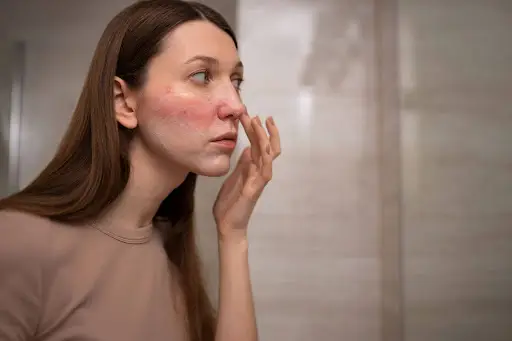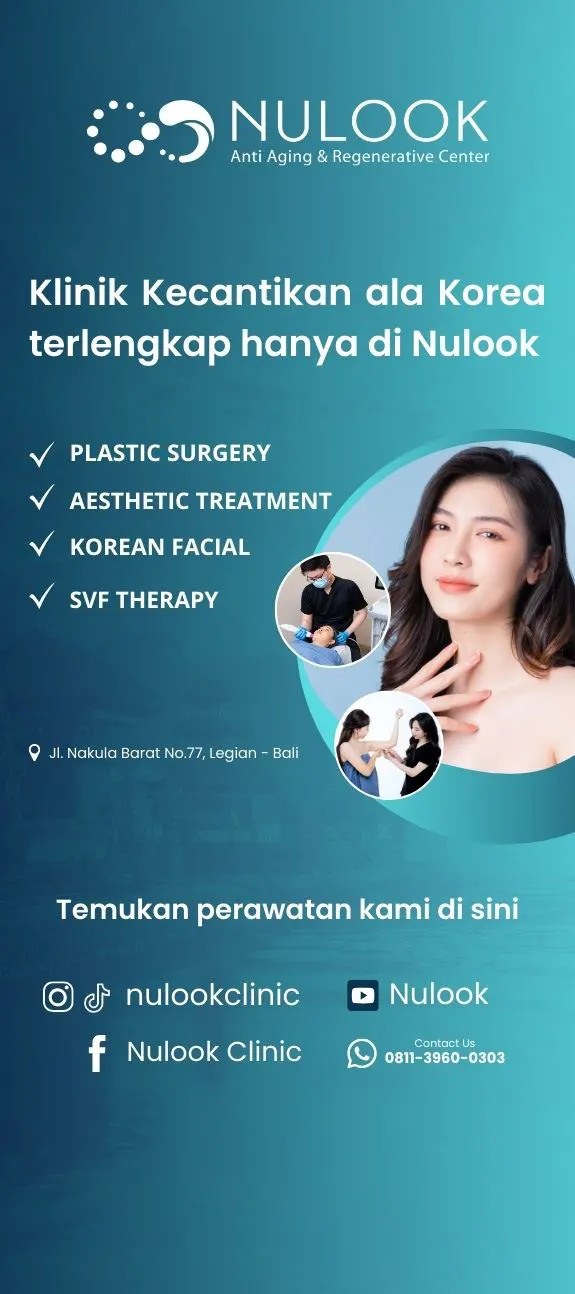7 Signs of a Damaged Skin Barrier on the Face
Author: Nulook ExpertiseReview by: -Having healthy and glowing skin is a dream for many people. However, often without realizing it, the skin barrier, our skin's natural protective layer, can become damaged. A damaged skin barrier can lead to various skin problems that affect both your appearance and comfort. Therefore, it’s important to recognize the signs of a damaged skin barrier so you can take the right steps to repair it and maintain your skin's health.
What is the Skin Barrier?
The skin barrier is the outermost layer of your skin, functioning as a "defense wall" against various external factors.
Definition and Function of the Skin Barrier
The skin barrier is made up of dead skin cells that are tightly linked together, along with natural fats like ceramides, cholesterol, and fatty acids. Its primary function is to protect the skin from pollutants, bacteria, and irritation while also maintaining the skin's natural moisture to prevent it from becoming dry. You can think of the skin barrier like the walls of your house; without these walls, the house would be vulnerable to damage from external forces.
Read Also: 9 Ways to Effectively Treat Nodular Acne
Why Does the Skin Barrier Get Damaged?
A healthy skin barrier provides maximum protection for the skin, but many factors can cause damage to this protective layer. These factors can come from both external sources and habits in our skincare routines.
Some causes of a damaged skin barrier include:
- The use of skincare products containing harsh chemicals or too many active ingredients.
- Exposure to pollution and UV rays without proper protection.
- Extreme weather changes.
- Over-exfoliation or excessive skincare treatments.
Understanding these causes can help you avoid actions that could worsen the condition of your skin barrier.
7 Signs of a Damaged Skin Barrier on the Face
Here are some signs that may indicate your skin barrier is damaged. Recognizing these signs early can help you take the proper preventive measures.
1. Dry and Rough Skin
Dry and rough skin is usually an early sign of a damaged skin barrier. The skin's moisture, which should be kept intact, evaporates because the skin barrier is no longer functioning properly.
2. Redness on the Skin
Red or inflamed skin could be a signal that your skin barrier is not healthy. When the barrier is damaged, the skin becomes more sensitive to external stimuli.
3. Breakouts or Acne
A compromised skin barrier can also lead to breakouts. This happens because the natural protective layer can’t block bacteria or dirt, leading to clogged pores.
Read Also: The Benefits of Facial Treatments for Healthy Skin
4. Itchy and Uncomfortable Skin
Itchiness and discomfort in the skin can also be a sign of a damaged skin barrier. Dry skin often causes itching and a stinging sensation, especially in the face.
5. Increased Skin Sensitivity
A damaged skin barrier will make your skin more susceptible to irritation, even from products that are typically safe. Sensitive skin tends to overreact to certain chemicals or skincare products.
6. Dull and Lackluster Skin
Healthy skin typically appears bright and radiant. However, when the skin barrier is damaged, your skin can appear dull due to a loss of moisture and its natural glow.
7. Easily Irritated by Skincare Products
If your skin suddenly feels hot or stings after using skincare products, it might be a sign that your skin barrier is in poor condition. Damaged skin will react more sensitively to new ingredients.
Read Also: 9 Ways to Effectively Treat Nodular Acne
How to Repair a Damaged Skin Barrier
Once you recognize the signs of a damaged skin barrier, the next step is to restore your skin’s health. Here are some tips for repairing a damaged skin barrier:
1. Choose Gentle and Skin-Appropriate Products
Use products specifically designed for sensitive skin or those containing gentle ingredients. Avoid products with alcohol or excessive fragrances, as they can worsen the damage to your skin barrier.
2. Avoid Over-Exfoliating
Exfoliation is useful for removing dead skin cells, but doing it too often can make your skin thinner and more vulnerable. Stick to exfoliating 1-2 times a week using mild exfoliants.
3. Focus on Moisturizing Products
Products with ingredients like ceramides, hyaluronic acid, and glycerin are excellent for repairing a damaged skin barrier. These ingredients help restore moisture and strengthen the skin's protective function.
4. Use Sunscreen Every Day
UV exposure can damage the skin barrier, so wearing sunscreen is crucial. Choose a sunscreen with the appropriate SPF and apply it daily, even if you’re staying indoors.
Read Also: The Difference Between Purging and Breakouts on the Skin
Conclusion
The skin barrier is the main line of defense for your skin against external threats. Recognizing the signs of a damaged skin barrier is an essential first step so you can take the proper actions to prevent further damage and restore your skin's health. With the right and consistent skincare, a damaged skin barrier can be healed, keeping your skin hydrated, acne-free, and glowing.
Give Your Skin the Best Hydration with Nu Luminous Waterdrop Facial!
If you often experience dry and sensitive skin, it can make your skin feel tight, irritated, and uncomfortable. Bring a solution to your skin with Nu Luminous Waterdrop Facial, a revolutionary facial treatment designed to tackle dry and sensitive skin. This innovative therapy combines the best Korean skincare techniques with a personalized program that provides deep hydration, improves skin tone, and gives an optimal lifting effect.
So, don’t wait any longer, Beauties! Visit Nulook today and schedule a consultation with our expert team to start experiencing the benefits for your face!
References:


